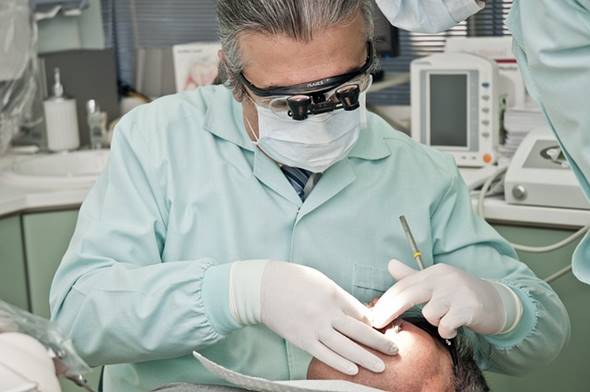
Dental implant surgery is a highly effective way to replace missing teeth, but it requires proper care and attention in order to ensure long-term success. After dental implant surgery, it’s important to maintain good oral hygiene habits to prevent infection and promote healing. Additionally, following a healthy diet can help to speed up the healing process and minimize complications. Here are some tips for maintaining good oral hygiene and following a healthy diet after dental implant surgery:
1. Maintaining Good Oral Hygiene after Dental Implant Surgery
Good oral hygiene practices are essential for the success of dental implant surgery. After surgery, the gums may be swollen and tender, so it’s important to be gentle when brushing and flossing around the implant area. Here are some tips for maintaining good oral hygiene after dental implant surgery:
Brush twice a day: Use a soft-bristled toothbrush to gently brush your teeth twice a day. Be sure to brush around the implant area, but avoid brushing too hard or aggressively.
Floss daily: Flossing is important for removing plaque and food particles from between your teeth and around the implant. Use a dental floss or interdental brush to clean around the implant area.
Use an antibacterial mouthwash: An antibacterial mouthwash can help to reduce the risk of infection after dental implant surgery. Use a mouthwash that is recommended by your dentist and follow the instructions carefully.
Avoid smoking: Smoking can delay the healing process and increase the risk of complications after dental implant surgery. If you smoke, try to quit or at least avoid smoking for as long as possible after the procedure.
2. Dietary Recommendations for a Successful Recovery after Dental Implant Surgery
Following a healthy diet can help to promote healing and minimize complications after dental implant surgery. Here are some dietary recommendations to follow after surgery:
Eat soft foods: After dental implant surgery, stick to soft foods such as mashed potatoes, soup, and yogurt. Avoid hard or crunchy foods that may irritate the implant area.
Drink plenty of water: Staying hydrated is important for the healing process. Drink plenty of water and avoid sugary or acidic drinks that can damage the implant area.
Avoid alcohol and tobacco: Alcohol and tobacco can delay the healing process and increase the risk of complications. Avoid drinking alcohol and smoking for as long as possible after the procedure.
Limit sugar intake: Consuming too much sugar can increase the risk of infection and delay the healing process. Try to limit your sugar intake and choose healthy, nutrient-rich foods instead.
3. The Importance of Follow-Up Appointments after Dental Implant Surgery
Dr. Gülay from Dentakay Dental Clinic in Antalya confirms that, following your dental implant surgery, your dental implant specialist will schedule follow-up appointments to monitor your progress and ensure that your implants are healing properly. These appointments are an important part of your post-operative care, as they allow your specialist to identify and address any potential complications early on.
During your follow-up appointments, your specialist will examine your implants and surrounding gums to ensure that they are healing properly. They may also take x-rays or other imaging tests to assess the condition of your implants and underlying bone structure. Based on these assessments, your specialist may recommend adjustments to your post-operative care plan or suggest additional treatment, such as antibiotic therapy or implant stabilization.
It is important to attend all of your scheduled follow-up appointments and to communicate openly with your dental implant specialist about any concerns or discomfort you may be experiencing. By closely following your specialist’s post-operative care instructions and attending all follow-up appointments, you can help ensure the long-term success of your dental implants and enjoy the benefits of a healthy, beautiful smile for years to come.
4. Lifestyle Adjustments to Ensure Long-Term Success of Your Dental Implants
After getting dental implants, there are certain lifestyle adjustments that you may need to make to ensure the long-term success of your new teeth. These adjustments may include avoiding tobacco and excessive alcohol consumption, as well as avoiding activities that may damage the implants, such as biting on hard objects or grinding teeth.
Tobacco use, including smoking and using chewing tobacco, can significantly increase the risk of implant failure. The chemicals in tobacco can impede the healing process, weaken bone tissue, and increase the risk of infections. If you are a smoker, quitting or reducing your tobacco use can greatly improve the success of your dental implants.
Similarly, excessive alcohol consumption can also impact the healing process and increase the risk of implant failure. It’s important to avoid consuming alcohol for at least a few days after your surgery, and to limit your alcohol intake in the weeks following your procedure.
Finally, it’s important to avoid activities that can damage your implants, such as biting on hard objects or grinding your teeth. If you grind your teeth at night, your dentist may recommend wearing a night guard to protect your implants and prevent damage.
5. Preventing and Addressing Complications After Dental Implant Surgery
While dental implant surgery is generally safe and effective, complications can occur in some cases. The most common complications after dental implant surgery include infection, implant failure, and nerve damage.
To prevent these complications, it’s important to follow your dentist’s aftercare instructions carefully. This may include taking antibiotics or pain medication as prescribed, avoiding certain foods, and practicing good oral hygiene.
If you do experience any complications, it’s important to contact your dentist right away. Infections can be treated with antibiotics, and implant failure may require additional procedures to correct. Nerve damage, while rare, can cause numbness or tingling in the mouth, and may require additional treatment.
Conclusion
Implant aftercare is crucial for ensuring the long-term success of your new teeth. By making necessary lifestyle adjustments and following your dentist’s aftercare instructions, you can help prevent complications and enjoy the benefits of your dental implants for years to come.


